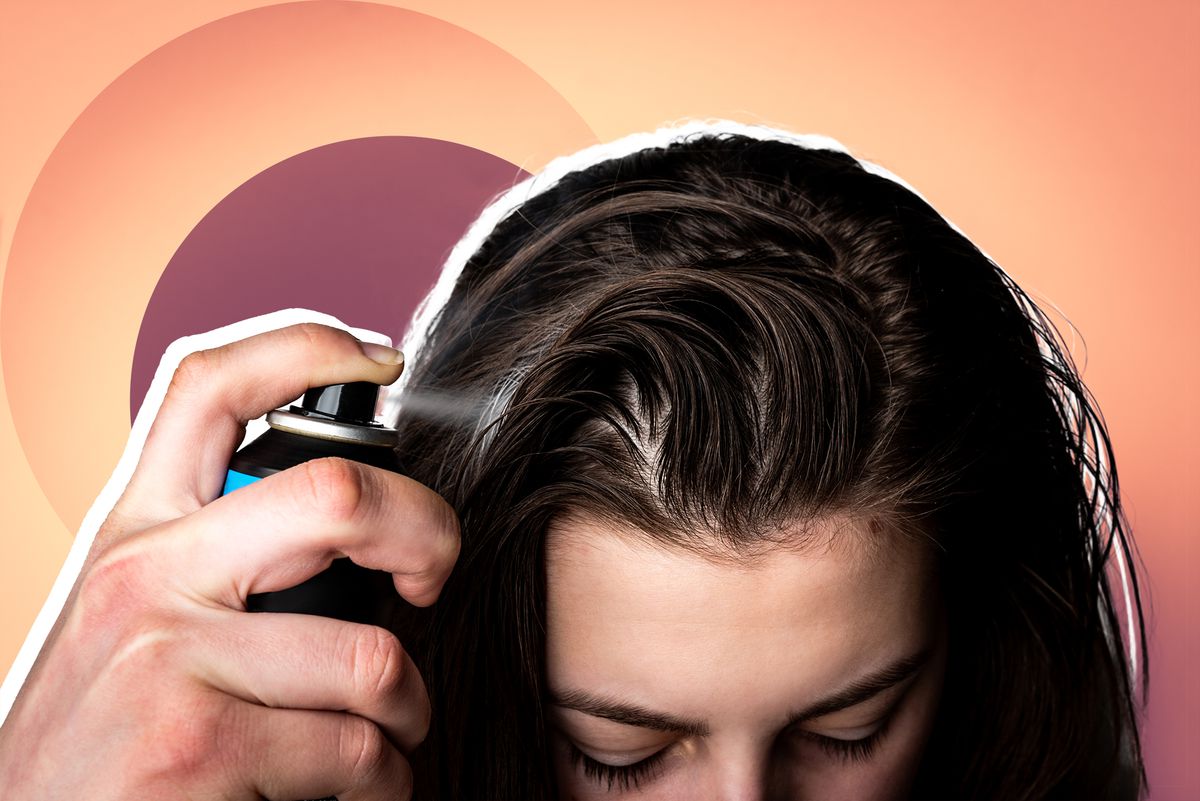P&G Recalls Certain Hair Products From Brands Like Pantene, Aussie, and Herbal Essences



Procter & Gamble (P&G) has issued a voluntary recall of select dry shampoos and conditioners over the presence of benzene, a known cancer-causing chemical.
The impacted sprays include lots from Pantene, Aussie, Herbal Essences, and Waterl<ss that were produced in the US, along with previously discontinued aerosol dry shampoo products from Old Spice and Hair Food. All of the affected products are packaged in aerosol cans. "Consumers should stop using and appropriately discard the affected aerosol dry conditioner spray products and aerosol dry shampoo spray products," P&G said in a news release on December 17.
You can view the full list of impacted products on the company's website. In all, there are 13 aerosol dry conditioner spray products and 19 aerosol dry shampoo spray products that are being recalled from across six P&G brands. The company makes clear that no other products from the brands on that list are impacted by the recall.
The recalled products were distributed nationwide, and retailers have been asked to remove them from shelves. If you have one of these products, P&G says it'll reimburse you.
The company said it decided to test all of its aerosol products after recent reports found traces of benzene in other aerosolized products, including certain antiperspirant sprays from P&G. "Nothing is more important to us than the safety of the consumers who use our products and the quality of the products we ship," the company said.
So far, P&G has not received any reports of adverse events related to this most recent recall of dry shampoos and conditioners. Ultimately, the recall is "out of an abundance of caution."
What is benzene?
Benzene is a chemical that is colorless or light yellow at room temperature, according to the Centers for Disease Control and Prevention (CDC). Benzene has a sweet smell and is highly flammable.
Benzene, which evaporates quickly into the air and dissolves slightly in water, is formed from natural processes like volcanoes and forest fires, per the CDC. It's also a natural part of crude oil, gasoline, and cigarette smoke.
Benzene can be used to make other chemicals that make plastics, resins, and nylon and synthetic fibers. It's also used to make some types of lubricants, rubbers, dyes, detergents, drugs, and pesticides, the CDC says.
Why is benzene bad for you?
At certain levels, benzene prevents your cells from working correctly, the CDC says. It can prevent your bone marrow from making enough red blood cells, leading to anemia. It can also damage your immune system by changing the levels of antibodies in your blood, leading to a loss of your white blood cells.
If you have long-term exposure to benzene (meaning a year or more), it can raise your risk of developing leukemia, a cancer of the blood and bone marrow, per the CDC. The chemical is also classified by the World Health Organization (WHO) as a Group 1 carcinogen. That means that there is strong evidence that links benzene to DNA damage and other bodily changes that can lead to cancer.
How did benzene end up in dry shampoo and conditioner?
Benzene is not an ingredient found in these dry shampoos and conditioners, but P&G said that the company's review "showed that unexpected levels of benzene came from the propellant that sprays the product out of the can."
Jamie Alan, PhD, associate professor of pharmacology and toxicology at Michigan State University, tells Health that benzene typically ends up in these types of products "some way in the manufacturing process."
How worried should you be if you used one of these products?
You shouldn't panic, Edward W. Boyer, MD, PhD, professor of emergency medicine at The Ohio State University Wexner Medical Center, tells Health. "The caveat with benzene is that it has to be above a particular level to cause cancer," he says. "If exposure is below that level, it does not cause cancer. If it's above that level, it might."
P&G echoed that sentiment in its recall notice, saying that, "Based on exposure modeling and the cancer risk assessments published by the Environmental Protection Agency (EPA), daily exposure to benzene in the recalled products at the levels detected in our testing would not be expected to cause adverse health consequences."
If you use these products the way you're supposed to (ie, here and there to help you freshen up your hair), "the greatest likelihood that will happen is you will wind up with clean hair," Dr. Boyer says.
Of course, given that you're spraying this around your head, there is a risk of breathing in benzene. The CDC warns that people who breathe in high levels of benzene may develop certain symptoms within minutes to several hours, including:
- Drowsiness
- Dizziness
- Rapid or irregular heartbeat
- Headaches
- Tremors
- Confusion
- Unconsciousness
- Death (with exposure at very high levels)
But Dr. Boyer says that the amount that you might accidentally breathe in by using a dry shampoo or conditioner is minimal. "You're not exposed to that much," he says.
There's also a chance of having skin irritation from benzene exposure, depending on the levels, Alan says.
Overall, Dr. Boyer says you shouldn't panic if you've used one of these products in the past. "This sort of recall is done more for risk perception and to make sure the company's risk is minimized rather than actual risk," he says.
Source: Read Full Article